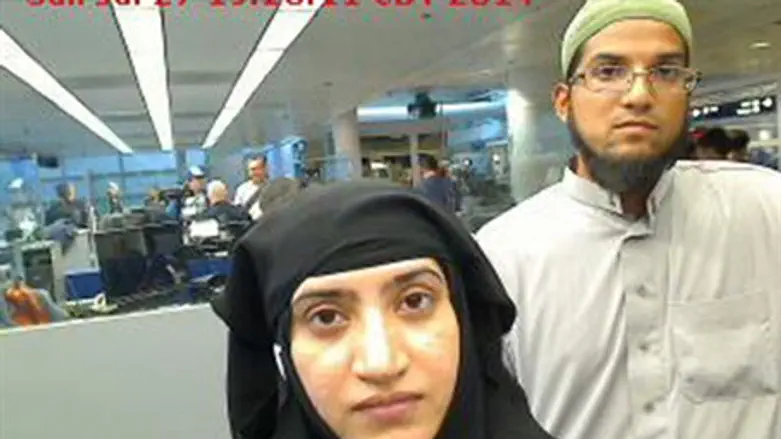
Tashfeen Malik together with her husband Syed Farook launched a lethal shooting attack murdering 14 people in San Bernardino, California early this month, but new revelations show the tragedy may have been avoided if stricter visa procedures were followed.
House Judiciary Committee Chairman Bob Goodlatte (R-VA) on Tuesday exposed Malik's fiancee visa application, reports Fox News, publishing the request that allowed the Saudi soon-to-be bride enter the US and later launch the lethal attack with Farook.
The 21-page K-1 fiancee visa application includes the application form and only two documents proving that Farook, an American citizen, had met Malik in the two years before the application, which is a requirement for obtaining the visa.
One of the two "proofs" submitted was a statement from Farook claiming the two first met in person in Mecca in 2013 during the Hajj pilgrimage, while the other was copies of their passport pages showing Saudi visas and stamps.
Goodlatte, who before releasing the application documents said immigration officials "did not thoroughly vet" Malik and slammed their "sloppy" work, would seem to be well supported in his assessment by the scant application.
“In order to obtain a fiancee visa, it is required to demonstrate proof that the US citizen and foreign national have met in person,” Goodlatte said. “However, Malik’s immigration file does not show sufficient evidence for this requirement.”
US officials asked for more evidence showing the two had actually met, said Goodlatte, "but it was never provided and her visa was approved anyway.”
Fox notes the statement appears to refer to a request in the file saying the applicant needed to submit an English translation of the passport stamps, but no such translation was included.
Engaged on the day they met?
The House Judiciary Committee noted that Malik's visa to Saudi Arabia was only valid for 60 days, casting doubt on whether the two were in the country at the same time.
“And even if Farook and Malik met in Saudi Arabia, there is insufficient evidence in the file for USCIS (US Citizenship and Immigration Services - ed.) to have made that determination,” read a statement issued by the committee.
Aside from the passport copies, the statement from Farook was counted as another "proof" of their meeting. In two paragraphs, he wrote that they met online and after writing back and forth for several weeks decided to meet.
Farook wrote that Malik was visiting her parents in Saudi Arabia in October 2013, and that he was in the country at the same time for the Hajj pilgrimage with his parents, claiming they met in Mecca at the house of a relative of Malik.
"It is on this day that we got engaged," wrote Farook.
The case has raised outrage over how Malik was allowed into the country without more careful checks. FBI Director James Comey said in a session that while Malik was supposed to give an interview as part of the fiancee visa process, he didn't know if such an interview took place.
Malik's permission to enter the US has also raised ire given the fact that the FBI says she was already radicalized previously, having discussed jihad and martyrdom with Farook. Malik was revealed to have pledged allegiance to Islamic State (ISIS) on Facebook.
Michele Thoren Bond, assistant secretary for the Bureau of Consular Affairs, last Thursday admitted in a House oversight hearing that the US had revoked over 122,000 visas since 2001, including 9,500 over terrorism concerns - but the Obama administration lost track of the terror suspects.